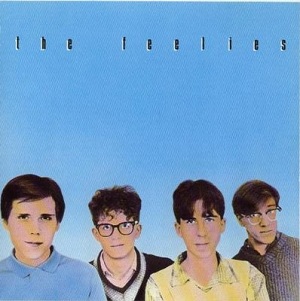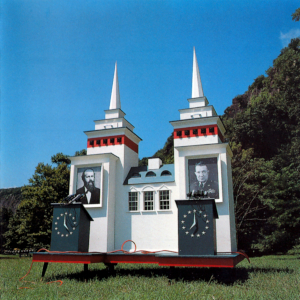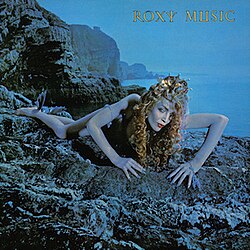Spoon are one of the first ballot Hall of Fame indie rock bands. They’ve an unimpeachable catalog – ten albums in 25 years – with barely a bad song in the batch. They write economical indie pop with deceptively complex rhythmic parts and gee-whiz sound effects that somehow never seem gimmicky. Every instrument in a Spoon song is load bearing. Their editing is impeccable. They are The Cars of the 21st century.
Britt Daniels may be the archetypical indie rock singer of the 2000s. He’s lean and tall (I think), doesn’t seem like an asshole, but definitely isn’t a pussy. He sings about love and not so much about sex, but that’s probably because he has no problem getting it in. He probably watches sports. He doesn’t have the weirdness of Steven Malkmus or Beck, the darkness of Elliott Smith or Jason Molina, or the scuzziness of Julian Casablancas or Pete Doherty. He would probably be the type of husband that would make the other neighborhood wives jealous.
If there’s a fault in the blessed, reliable, hard-worked career of the indie lifers of Spoon, it’s that they have no faults, which can itself be something of a soft spot. Spoon’s music is of such a general excellence that can scan as bland. Its straightforwardness may seem basic.
David Byrne said that he “wrote songs about small things.” Daniels must be a disciple. He writes about fitted shirts, Japanese cigarette cases, and 30 gallon tanks. He asks questions that are either rhetorical (“Who makes your money?”) or don’t have clear answers (“Is love forever?”). I think he writes sharp, skeletal, yet evocative, songs, but you probably won’t get a humanities class dedicated to dissecting them.
Besides, Spoon’s music is really about the sounds. And their sounds are almost suspiciously tasteful.
Spoon began their career in the ‘90s aping The Pixies, Wire, and Pavement. They broadened their sound by adding piano at the same time as The Walkmen did in the 2000’s and making more rhythmic music as LCD Soundsystem turned a generation of guitar kids onto beats and synths. In the 2010s, right around the time of Destroyer’s Kaputt, when Roxy Music’s Avalon started showing up on the hip kids’ record players, Spoon added lush pad sounds and saxophone with a ton of reverb. Somehow Spoon always cherry pick the best sounds of an era, while avoiding the over-ripened ones that would make their music sound dated. You will not find any T-Pain style autotune in their catalog.
For today’s album, I’m picking a dark horse from their catalog. Spoon came into their own with Girls Can Tell and Kill the Moonlight. They made their best swing at pop success with Ga Ga Ga Ga Ga. And with They Want My Soul and Hot Thoughts, they evolved into a glossy production machine, making music that sounds like it was written on a computer and yet played on live instruments.
The songs of Spoon’s A Series of Sneaks, were most definitely written on a guitar. This, their second album, is a refinement of their Pixies’ biting debut Telephono (compare “Nefarious” to “Gigantic” and you’ll get Pam from The Office’s “It’s the same picture” gif). On A Series of Sneaks, the guitars roll back the distortion and the bass isn’t so strident. The album shows a band evolving toward what it would become – less alt-rock, more pop – but not quite getting there yet. While I’ll I’ll go to bat for the albums that follow as more iconic, I like A Series of Sneaks the most of any Spoon.
At only a shade over a half hour, it embodies the fatless songwriting of Pink Flag–era Wire, while embracing the sonic exploration of Chairs Missing-era Wire. I guess I’m trying to say that this era of Spoon really loved the late ‘70s era of the British post-punk trailblazers Wire, which, you know, I love them too. Granted that sonic exploration is a little limited compared to what would come later. There’s a flanger pedal here, a tremolo pedal there, some backward vocals, etc. – nothing like Kaoss Pad zaps and keyboard waterfalls that would appear on They Want My Soul.
Spoon have their own “Pink Flag” in “30 Gallon Tank,” an exercise in dynamics that would lay the groundwork for the rest of their career, and joyous pops of noise and energy like the minute-and-a-half long “Car Radio,” an example of the type of songlet they would never release again. There is the minimalist “Metal Detektor” which shows how a hint of organ, some sketches of verse, and wistful backup vocals could create a mood with as few pieces as possible. And there’s the lo-fi acoustic “Chloroform,” which is the type of toss-off that the modern Spoon would fuss into an epic or discard all together.
I probably have an affection for this era of Spoon because it’s the last time they seemed confused as a band. After making the leap from Matador Records to Elektra in 1998, they discovered the A&R rep that pursued them, Ron Laffitte, had suddenly lost interest once they released A Series of Sneaks, which instantly tanked. After Elektra dropped them, Merge scooped them up, released Girls Can Tell to acclaim, and the rest is history. When Merge re-released A Series.of Sneaks in 2002 they included two venomous, “Positively 4th Street”-style kiss-offs tracks: “The Agony of Laffitte” and “Laffitte Don’t Fail Me Now,” as a parting “fuck you” to Electra’s A&R man who had taken them for a ride. It’s probably the last time Spoon pumped red blood.







